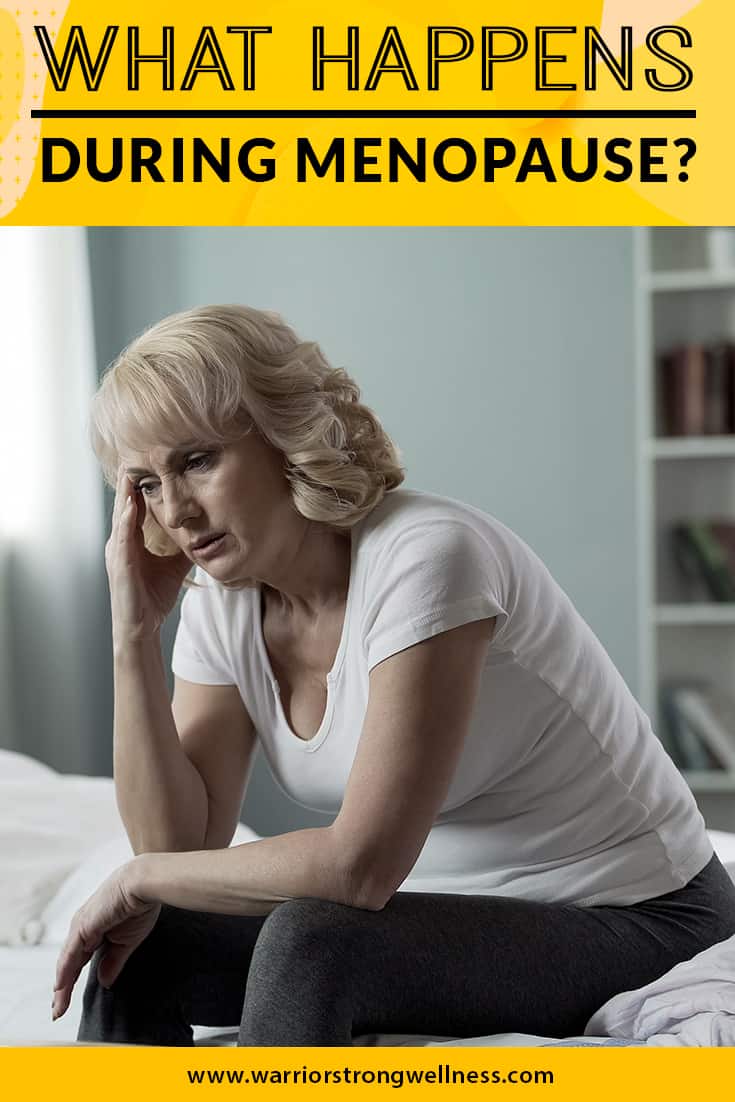Menopausal women often have trouble sleeping, among other things. Thanks to Ashwagandha for women, we find a quick fix to getting a good night’s sleep.
Ladies, I think we all can agree: Being a woman isn’t all sunshine and rainbows. A lot of unique changes happen in our bodies. After puberty, fertility, and pregnancy, we have to cope with menopause. While many dread this stage, it should not be dealt with fear and anxiety.
Menopause is the phase in a woman’s life when her period stops, and she can no longer get pregnant. During this point, the ovaries shrink and discontinue developing estrogen and progesterone—two essential hormones that regulate the menstrual cycle. As a result, the number of female eggs drops, and infertility happens from there on.
This natural outcome of aging commonly hits females between the ages of 45 and 55. But it can happen earlier. If you’re around this age (like myself) and experiencing mood swings, weight gain, hot flashes and difficulty sleeping, know that menopause can be the one responsible for all these.
The Stages of Menopause
Women come to grips with menopause differently. Menopause can generate mixed emotions and multiform of physical symptoms. When menstruation comes to an end, the body experiences hormonal ups and downs. Menopause progresses in three stages: Perimenopause, Menopause, and Postmenopause.
First Stage: Perimenopause
Perimenopause is the “transition stage,” which begins eight to 10 years leading up to menopause. It happens some time in your 40s or as early as your mid-30s. During this time, symptoms of menopause can begin to unfold as the ovaries make less estrogen. Your first hot flash may happen around this time.
Second Stage: Menopause
You have officially reached menopause when you no longer have your menstrual periods for 12 consecutive months (an entire year). At this point, the ovaries have officially stopped producing estrogen and releasing eggs. In a short while, I am sharing a comprehensive list of symptoms you can encounter during menopause.
Third Stage: Postmenopause
Postmenopause is the phase following menopause. It is the final stage and can last for several more years. In general, the menopausal symptoms already decline during this period.
Symptoms of Menopause
How do you tell you’re near menopause or if you have already gone through it? I say pay attention to the physical and emotional changes you deal with. Many women notice their periods going haywire as one of the early signs of menopause.
Here is a list of the other common symptoms that tell menopause might be just around the corner:
- Change in period
- Mood swings
- Headaches
- Fatigue
- Anxiety
- Depression
- Change in libido or loss of it
- Vaginal dryness
- Bladder control issues
- Hot flashes
- Weight gain
- Night sweats
- Panic disorder
- Urinary tract infection
- Breast pain
- Insomnia and other sleep disorders
These menopausal indicators may persist for ten months up to four years. In some quite rare cases, these symptoms may stick around past that, and last until your seventies! As a result, many women welcome menopause as unpleasant life-change. Who wouldn’t? Imagine having stress or anxiety accompanying you all day, and at night, having hot flashes while you toss and turn due to insomnia. Not only that, either night sweats or depression keep you up all night.
Despite all these, other women still adapt to changes happily (which you should too), enjoying the freedom to partake in social functions and jobs—which they had a hard time accomplishing when they still had their periods. They take Ashwagandha for women to get a full night’s sleep, and other steps to improve their menopausal symptoms.
Why Menopausal Symptoms Stick Around
Why do these annoying menopausal symptoms don’t go away in some women?
A study discovered that menopause-related hot flashes and night sweats could last a lot longer—about seven to 11 years! Unfortunately, 80% of menopausal women experience hot flashes. The hormonal roller coaster that women deal with during menopause is the likely culprit behind this.
Genetics can also play a part in the duration of menopausal symptoms as well as diet, general health, and lifestyle factors. Most importantly, some triggers could also be making menopausal symptoms stick longer than they should. Distinguishing your potential triggers and avoiding them is a great starting point to improve your symptoms. Menopausal triggers can include:
- Not getting adequate sleep
- Chronic stress
- Eating spicy food
- Consuming alcohol
Practical Steps to Improve Menopausal Symptoms
Besides staying away from your triggers, here are some other handy tips in managing your menopausal symptoms:
-
Stay active and enjoy a healthy diet.
A well-balanced diet and regular exercise work wonders for symptoms of menopause. Exercise can help you destress while a healthy diet provides the proper nourishment for your body. However, do not exercise nor eat before bedtime as it can interrupt your sleep.
You can try incorporating flaxseeds into your diet. They are rich in omega-3 acids and lignans, which serve as phytoestrogens. It can help reduce the symptoms related to menopause. As much as possible, avoid eating fried or processed foods and opt for healthy fats such as coconut and avocado.
-
Drink enough water.
Women sweat a lot during menopause, which means you are losing more body fluid. Make it a habit to drink at least eight glasses of water every day. Besides water, you can also drink coconut water or eat watermelons to cool your temperature.
-
Do stress reduction techniques.
Stress is the biggest contributor to worse and longer symptoms of menopause. Therefore, addressing stress is a must-do to improve mood swings, fatigue, and depression that often accompany menopause. As mentioned in item #1, exercise is a highly-recommended way to curtail stress, hormonal imbalance, and sleep disorders. You can try low-impact exercises such as yoga, walking, or cycling.
-
Avoid daytime naps.
Napping for too long or at the wrong time of day can do more harm than good. If you have insomnia or find it hard to sleep at night, napping can worsen your situation. Long and frequent daytime naps can disrupt your nighttime sleep, so avoid it at all costs if you can. If you really must take a nap, keep it short for only 10 to 20 minutes.
-
Take supplements like Ashwagandha for women.
You may feel more irritable and moodier around the time of menopause. If you are anxious or chronically stressed, take a pure organic Ashwagandha supplement to reduce your mood swings and stress. This supplement capsule contains antioxidants, iron, and amino acids that encourage restful sleep and hormonal balance.
Try to implement these tips if you are in your menopausal phase, and always remember that life is not ending, but is just approaching a new chapter loaded with joyful surprises. Enjoy life to the fullest!



